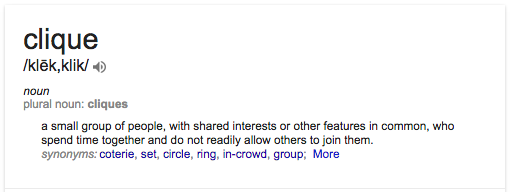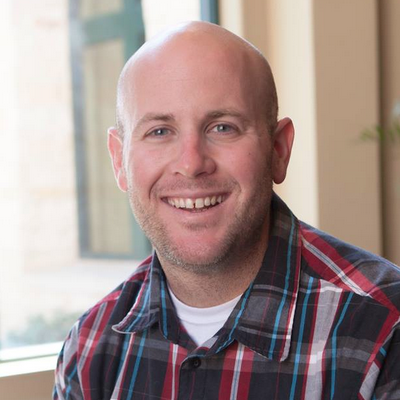by David Hanson | Oct 23, 2014 | The Youth Ministry Blog
Disclaimer: What you are about to experience is a rant post. So if you are a youth pastor, I may, or may not, be talking directly to you.
The more time I spend in youth ministry, the more I get frustrated with the quarks of youth ministry. Below you will find five things that youth pastors need to stop.
1. Stop pushing entertainment over the gospel.
I get it. You want kids to show up, so you advertise and program around things that students would be interested in (i.e. dodgeball, all-nighters, give-aways), but what happened to the preeminence of Christ? That word “preeminent” means supreme, of utmost importance, marquee, chief, or most excellent. When you sit before the throne of God, what will matter more? How you lifted up His name or how great your all-nighters went? Which leads me to my second point…
2. Stop making it about the numbers.
I’ve heard the lines: “God cares about people, if people are numbers we’re counting, I should care about numbers.” Stop! I’ve been there. It’s hard not to associate growth and spiritual progression with numbers. But once again, is God more concerned with the breadth of your flock or the dedication and faithfulness of your flock?
3. Stop dressing like a teenager.
Time for comic relief. If you dress like your students and are double their age…something is wrong…very wrong. Be yourself. Stop trying to be “like” them and start leading them! Every youth conference I attend…the more disappointed I get in the fashion choices of youth pastors!
4. Stop leaving so quickly.
I once heard that the average stay for a youth pastor was 18 months. If that is actually true…shame on us! Very little is accomplished in 18 months. I am going on 3.5 years in my position and feel like I am just scratching the surface of what God wants to do through me in this community. Stick around.
5. Stop neglecting your family.
While investing your time and energy into a community is important, don’t sacrifice your family on the alter of “ministerial success.” It will not benefit you in the long run. Here is the reality: Every other ministry of the church has the summer “off”…except youth ministry. So when is your down season? When do you pull back the throttle to refresh, rejuvenate, refill the tank, and focus on the family you have seldomly seen throughout the summer? My suggestion: scale back in December.
What else do youth pastors need to stop doing? Comment below!
[guestpost]
David Hanson: Texas native, Texas Tech Red Raider, M.Div. at Truett Seminary, husband to Ashley, father to Ava & Ben, Student Pastor at LifePoint Church in Plano, Tx, table tennis (ping-pong) extraordinaire, addicted to coffee. For anything else…you’ll just have to ask.
[/guestpost]
by David Hanson | Oct 22, 2014 | The Youth Ministry Blog
Over the past two months I have been a part of three retreats. I was the speaker for two of these retreats and hosted the other for my students. Two of the fall retreats had what I’m calling a “secret sauce” and the third (the one I hosted) did not.
So what is this secret sauce?
Free Time.
Whoa. Whoa. Settle down. I didn’t mean to blow your mind with this ground breaking concept!
But on the real, I was truly convicted about the way I structure a retreat. Our students are over-scheduled, over-worked, sleep deprived, and stressed. One of the youth pastors I spoke for told me he had a student who had to go see a doctor for stress related twitches.
Between tutoring, classes, athletic/musical/artistic practice, club meetings, chores, family time, and homework, our students have little to no downtime.
As youth pastors planning retreats and getaways, we have the opportunity to help students detach from chaotic weekly schedules and experience the beauty and serenity of free time. At my most recent retreat not only was there free time for the students to shoot hoops, play gaga ball, hike, or canoe, but there was a half hour of planned prayer and solitude.
When planning a retreat, it can be tempting to fill the schedule. In fact, if you are like me, you feel PRESSURED to fill the schedule! After all, these students/parents are paying good money for their kids to attend an event, so we better deliver with high quality, entertaining activities…right? Not so much…
The best thing that many of us can do is balance high quality programming with intentional free/down time. When we mark out intentional free time or planned prayer and solitude, we help our students understand what it means to Sabbath…a concept lost to football, homework, and projects.
What are your thoughts? Have you had success with intentional free time? Have you felt pressured to fill retreat schedules? Comment below!
[guestpost]
David Hanson: Texas native, Texas Tech Red Raider, M.Div. at Truett Seminary, husband to Ashley, father to Ava & Ben, Student Pastor at LifePoint Church in Plano, Tx, table tennis (ping-pong) extraordinaire, addicted to coffee. For anything else…you’ll just have to ask.
[/guestpost]
by David Hanson | Oct 6, 2014 | The Youth Ministry Blog
If you serve in any capacity in student ministry, you understand that students say funny things. You also know that adults say funny things. I thought I’d share some of the top things people have said to me over the past 10 years of being a student pastor.
-
“What other job do you have besides being a student pastor?”
Student ministry is a multifaceted job. You have to learn how to plan events, write sermons, develop leaders, help parents in crisis, counsel students, edit videos, create graphics, update websites, plan events and more. It is a random ministry position that includes a lot of fun and creativity! But most people do not understand it.
-
“When will you become a real pastor?”
I heard a friend of mine say that once he knew a guy that was a youth pastor. He was amazed at how fast he became wise, in one day, when he accepted a senior pastor role. All of a sudden people listened to what he said and wanted his advice on everything. Student pastors are pastors. A lot of what we do is shepherding students and their families.
-
“I am amazed that someone would WANT to spend time with students!”
People don’t know how encouraged I am by students and their desire to serve God. I believe that students ARE the church, not just the future of the church. The energy and openness to God is what makes student ministry special to me.
-
“My child doesn’t want to come to church, can you get them to come?”
Usually the student can tell that even the parents don’t want to be at church. What you see in a student’s life mirrors what happens in the home, especially their attitudes. Parents are the biggest influences in the lives of their students. I usually talk to the parent about how to influence their child to see God working in their life.
-
“If we can keep the kids busy, we will keep them out of trouble”
Busyness doesn’t help students. Focused discipleship helps students grow alongside relationships with others. Busy calendars alone, as the focus, usually can lead to distracted people.
If you are in student ministry, I’m sure you can add to the list! We have an opportunity to invest and influence this generation. As hard as it can be at times, we focus upon the spiritual investment of the gospel into their lives.
People will always say positive and negative things about student ministry. The enemy hates that you are investing in this generation! Stay focused upon why you are doing what you are doing. Live for an audience of One as we all seek to hear the words, “well done, good and faithful servant.”
[guestpost]
Josh is the student pastor at Church @ The Springs in Ocala, Florida (www.thesprings.net). Josh has served in student ministry for 9+ years and has a passion to lead students to imitate Christ and influence the world! He has a personal blog at http://joshrobinson.cc
[/guestpost]

by David Hanson | Sep 29, 2014 | The Youth Ministry Blog
If you’ve spent any time in youth ministry, then you’ve exhaustively encouraged students not to form cliques. It usually comes in the form of: “Let’s be sure to include everyone!” or “Make sure you don’t leave anybody out!” or “This weekend everyone is your BFF!”
But apart from “Love your neighbor as yourself” (Matt. 22:39), have we ever explained to students WHY we use these cheesy one-liners to encourage inclusivity?
Try this one on for size:
2 My brothers, show no partiality as you hold the faith in our Lord Jesus Christ, the Lord of glory. 2 For if a man wearing a gold ring and fine clothing comes into your assembly, and a poor man in shabby clothing also comes in, 3 and if you pay attention to the one who wears the fine clothing and say, “You sit here in a good place,” while you say to the poor man, “You stand over there,” or, “Sit down at my feet,” 4 have you not then made distinctions among yourselves and become judges with evil thoughts?
8 If you really fulfill the royal law according to the Scripture, “You shall love your neighbor as yourself,” you are doing well. 9 But if you show partiality, you are committing sin and are convicted by the law as transgressors. -Matthew 2:2-4 & 8-9
Cliques are Sinful
I would bet that most students have no clue that their “cold shoulder” is an act of sin. Furthermore, most students have no concept of sins of omission.
Sins of Commission – knowingly doing something wrong.
Sins of Omission – Not doing what you know you should do.
If James were talking to a group of students today, he might say:
“My brothers, show no favor as you follow Jesus, the Lord of Glory. For if a cool kid wearing the latest clothes with the nicest car is walking down the hall, and the stinky annoying kid who nobody likes is also walking down the hall, and you pay attention to the cool kid, have you not shown favor to cool kids?…If you show favor to people you like over people who you deem “unimportant,” you are committing sin.”
Our emphasis on inclusion is not merely an attempt to foster community, it’s a battle against sin.
How do you help foster community and fight against exclusivity? Comment below!
[guestpost]
David Hanson: Texas native, Texas Tech Red Raider, M.Div. at Truett Seminary, husband to Ashley, father to Ava & Ben, Student Pastor at LifePoint Church in Plano, Tx, table tennis (ping-pong) extraordinaire, addicted to coffee. For anything else…you’ll just have to ask.
[/guestpost]
by David Hanson | Sep 22, 2014 | The Youth Ministry Blog, Youth Ministry Videos
I love seeing students connect the dots. More specifically, I love seeing students grasp grand narratives of Scripture. Remember when you first learned that Jesus was the answer to Adam (sin in/sin out), or that Jesus was the final sacrificial lamb to passover your sins?
While these may be old hat for veteran believers, it’s awesome to see students make the connections! I recently came across this “sermon jam” of a Tim Keller sermon that will help your students make those connections:
We used this as a bumper video and did a whole series entitled: “Jesus the True & Better _______.” How could you work this into a lesson?
If you want another video that teaches, go read this recent post & video that gives an Overview of the Whole Bible.
[guestpost]
David Hanson: Texas native, Texas Tech Red Raider, M.Div. at Truett Seminary, husband to Ashley, father to Ava & Ben, Student Pastor at LifePoint Church in Plano, Tx, table tennis (ping-pong) extraordinaire, addicted to coffee. For anything else…you’ll just have to ask.
[/guestpost]
by David Hanson | Sep 17, 2014 | The Youth Ministry Blog
Hard conversations. Every ministry leader has at least one that they need to have soon. It could be that you have to say no to someone important at your church. You might have tell a leader to step down. There may be a person in your life who you need to confront about their sin or confess your own. Some people find it easy to have these conversations. I am not one of those people. My tendency is to avoid having them and suffer silently on my own.
Joseph Grenny defines a crucial (hard) conversation as “A discussion between two or more people where (1) stakes are high, (2) opinions vary, and (3) emotions run strong.” *
This summer it seems that I have had to have more than the usual number of tough conversations with students, parents, and co-workers. God has been challenging me to stand courageously as I open my mouth. It’s honestly been one of the most challenging seasons in ministry. But through it all, God is teaching me that through these tough conversations there is blessing. I’ve also learned a few lessons along the way.
Lesson # 1 – Having the conversation is better than avoiding it.
If you hate conflict like me, then you avoid conflict because you fear the worst possible outcome will actually happen. The reality is that avoiding the conversation will NOT solve your problem. The relational tension will still be there and your issue will not be solved until you sit down and have the conversation. The longer you avoid the conversation the more the problem will intensify when the issue finally does come to a head. If you have that hard conversation, the worse might happen. If you avoid it the worst possible outcome will happen.
Lesson # 2 – Believe the best in the other person.
When we have an emotionally charged conversation coming our way it’s easy to paint that person in the worse possible light. We start to believe that they have completely impure motives while you have completely pure ones. This is almost never true. You will never be able to get inside someone else’s mind and truly know their heart. Make the conversation about issues, not motives. When you believe the best in someone else you allow them the opportunity to surprise you with their flexibility and reasonableness. You also allow yourself to see things from their perspective.
Lesson # 3 – Don’t be afraid to be firm on what matters to you.
This is a hard one for me. I want people to like me. I worry that if I stand firm I’ll lose the relationship. Giving in becomes my strategy. If I follow this route I end up resenting myself and that other person because I didn’t fight for what I believe to be important. You can be firm and still communicate that you care about the other person. Standing firm and showing care not mutually exclusive. Most of the time being firm will NOT harm the relationship as long as you affirm the relationship at the same time.
What hard conversation do you need to have this week? Will you prayerfully consider taking a step of courage and have that conversation before it’s too late?
*Want to dive more into how to have hard conversations? Read Crucial Conversations: Tools For Talking When Stakes Are High by Patterson, Grenny, McMillan, and Switzler.
[guestpost]
Kevin Libick is a Middle School Pastor living in Fort Worth, TX with his wife Kara and her two cats. He is a novice banjo picker and expert Hawaiian food eater. Kevin loves to connect with other youth workers and equip them to live out their calling in God’s Kingdom. Kevin loves to connect with and empower youth workers. Connect with Kevin on Twitter: @kevinlibick
[/guestpost]




